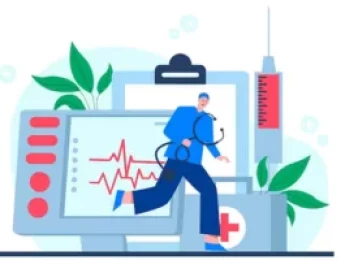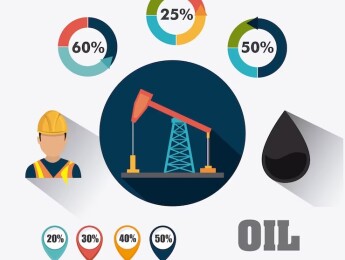The petroleum industry faces increasing demands each year. With increased demands comes increased risk, as businesses struggle to maintain service, quality, and productivity for globally recognised fuel products.
Because fuel's value changes so frequently, it’s important to always understand and consider economic risk factors that could influence or affect your business and be proactive to secure the highest return on investment.
Developing a full understanding of tax regimes, profit predictions, and potential market changes will help you to form an accurate picture of economic risk indicators.
It’s also essential to study your in-house processes and procedures to determine any gaps in processes or risk areas within your operation that could affect your workforce or your potential to make a profit. Proper auditing, record keeping and evaluation methods against data will help you remove risks from the business so you can continue to grow and gain more profit.
Upon completion of this course, participants will be able to:
- Understand gas and oil industry terminology.
- Determine which financial models best benefit your organisation.
- Create audit logs and risk assessments to secure future processes.
- Evaluate risks and make changes to mitigate profit loss.
- Understand investment models and negotiate with stakeholders based on future-proofed plans.
- Make effective decisions based on risk evaluation.
- Recover from profit loss and amend processes to learn lessons.
- Conduct a thorough workspace assessment to ensure a safe working environment to move forward.
- Quantify risks and take them when they may pay off.
This course is designed for anyone involved in creating and carrying out risk management procedures or is tasked with continuously improving a petroleum business. It would be most beneficial for:
- Project Managers
- Business Owners
- Operations Managers
- Assets Managers
- Stakeholders in Petroleum Businesses
- Health & Safety Executives
- Planning Managers
- Analytics Managers
This course uses a range of adult learning methods to help aid understanding and decision-making. It consists of presentations that uncover potential risk areas in the petroleum industry and how to overcome challenges.
There will be group practical learning sessions to create risk assessment profiles for individual businesses coupled with tools and techniques to aid the assessment process. Participants will also be presented with real-world examples of risk assessments and the accompanying data to aid a full understanding of the risk management process and its positives and pitfalls.
Day 5 of each course is reserved for a Q&A session, which may occur off-site. For 10-day courses, this also applies to day 10
Section 1: Organisational Risk Elements
- What constitutes a ‘risk?’
- Why is risk management essential for any business?
- The problems with risk management.
- The practical risk lifecycle.
- What to look out for on your risk management plan.
Section 2: Identifying Risk Areas & Risk Communication
- Risk awareness from the bottom up.
- Technical risks, business risks and workforce risks.
- Risks to profit and income.
- Risk identification methods.
- The risk register.
Section 3: Risk Quantification & Analysis
- Risk management planning.
- Qualitative risk analysis.
- Quantitative risk analysis.
- The risk matrix and management process.
- Sunk costs and inflation planning.
- Financing your project changes.
- Cash flow evaluation and depreciation.
Section 4: Risk Management Tools & Techniques
- The proactive risk management process.
- The risk management process wheel.
- High-reliability organisations (HROs).
- The decision-making grid (DMG).
- Quantitative Risk Analysis (QRA).
- Fault Tree Analysis (FTA).
- Reliability Block Diagrams (RBDs).
- The Discount Factor.
Section 5: Managing & Mitigating Risk
- Planning your risk response.
- Creating a strategic risk management plan for the future.
- Project opportunities and execution.
- Probability and sensitivity analyses.
- Creating a cash value formula.
- How to manage uncertainty and opportunities where risks may pay off.
Section 6: Risk Reporting, Record Keeping & Change Outcomes
- Positive reporting methods and their results.
- Negative reports and how to make amendments.
- Record keeping for later review.
- Audit trails and risk assessment date planning.
- Incremental projects and your profit ratio.
- NPV and what it means for your future.
- The payback period and internal rate of return.
Section 7: Reinventing Processes Based on Experience
- Review risk management processes.
- What worked and what didn’t?
- Future forecasting and risk prediction.
- Monitor and review.
- Feedback and analysis.
- Oil field development for the future.
- Calculating future risk and creating a strategic framework.
Upon successful completion of this training course, delegates will be awarded a Holistique Training Certificate of Completion. For those who attend and complete the online training course, a Holistique Training e-Certificate will be provided.
Holistique Training Certificates are accredited by the British Assessment Council (BAC) and The CPD Certification Service (CPD), and are certified under ISO 9001, ISO 21001, and ISO 29993 standards.
CPD credits for this course are granted by our Certificates and will be reflected on the Holistique Training Certificate of Completion. In accordance with the standards of The CPD Certification Service, one CPD credit is awarded per hour of course attendance. A maximum of 50 CPD credits can be claimed for any single course we currently offer.
- Course Code MG2-105
- Course Format Classroom, Online,
- Duration 5 days














